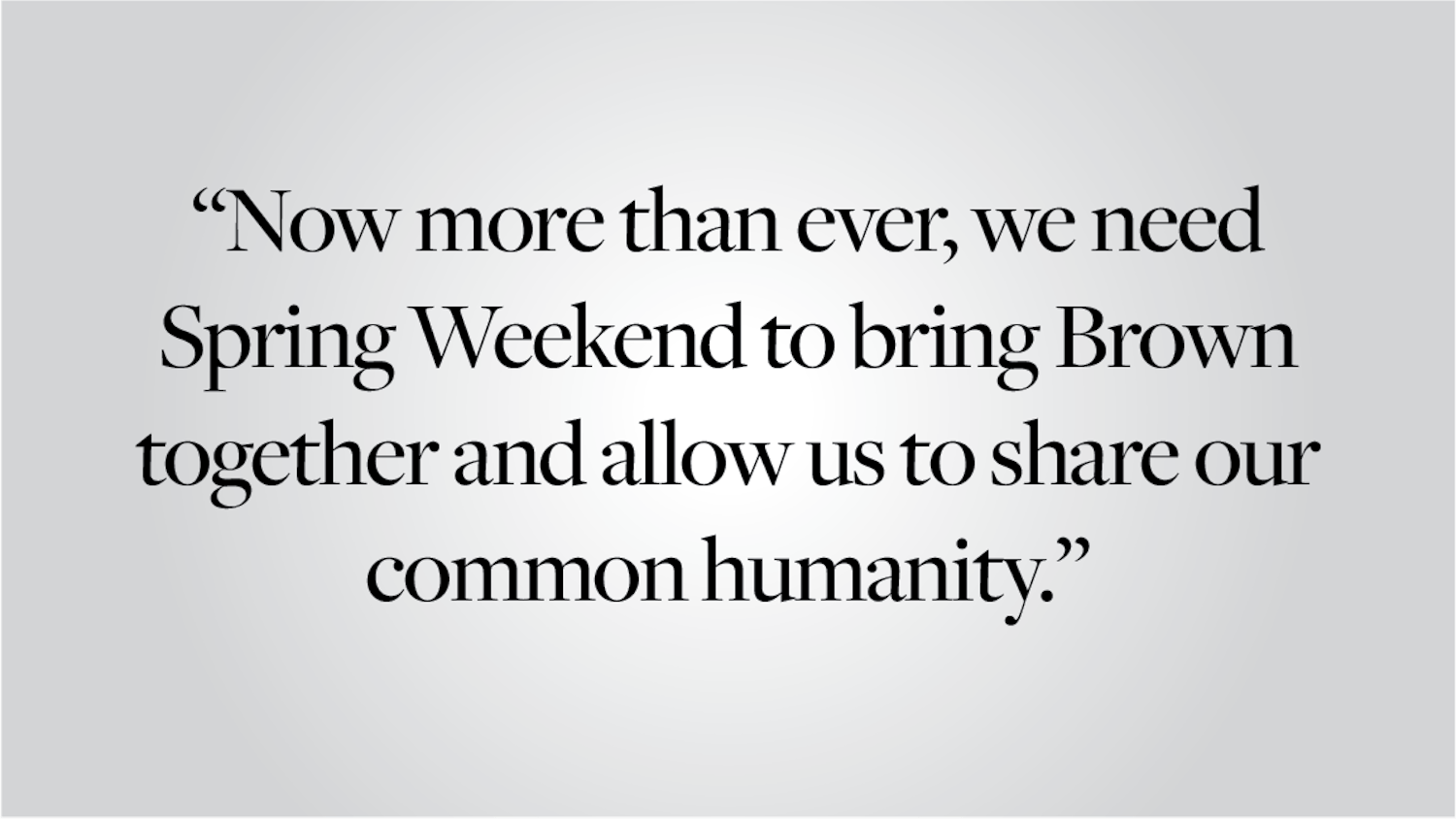The experience of growing up undocumented instilled in me a hyper-awareness of the fragility of my family’s place in U.S. society. It exposed me to the injustices of our current immigration system from an early age and has shaped a large part of who I am. My dad has always encouraged us to lead as normal of a life as possible, claiming we couldn’t let our legal status wedge itself between us and our happiness and aspirations. Millions of mixed-legal-status families develop their own defense mechanisms against the crippling fear of being separated. My dad battled internalizing the idea of being an outsider, or an “alien,” as immigrants are referred to by our legal system, in a country that has been his home for over 20 years by maintaining a jovial optimism and unwavering faith that things would “work themselves out.” Recently, however, our administration’s divisive, criminilizating and anti-immigrant rhetoric, along with sobering statistics such as 2017’s 40-percent rise in immigration arrests carried out by the unscrupulous Immigration and Customs Enforcement agency, have made it increasingly difficult to be so optimistic. A message is being sent loud and clear: Immigrant families are under attack and no one is safe.
It became increasingly clear to me that any moment the four of us spent together could be our last. As a student, that is why, this past spring break, I forewent travel with friends and educational opportunities, opting to spend the entire week with my family. It is the reason why I prioritized being home for my upcoming summer plans rather than seeking internships in a major metropolis. Throughout the semester, I constantly face the guilt of being hundreds of miles from home and have to remind myself of the privilege of having access to a Brown education and the ways in which it can ameliorate my family’s situation, especially as a first-gen student from a low-income background.
When I do have the opportunity to be home with my family, I cherish every second of it: the group labor of making a meal together, my parents’ recounting of their lives, laughing hysterically at my dad’s jokes and observing the wrinkles that have formed around my parents’ eyes when they smile. The uncertainty of our future makes me wish these moments would last forever. I experienced our time spent together with a heightened sense of awareness, wanting to slow it down and freeze it so I could soak it all in and never forget any of it. I once read a book in which the characters defined their love by how deeply they missed each other when they were together. They felt the loss before it happened, and their love was defined by that loss, a type of melancholy love, and fierce nostalgia for the present. It’s the closest description I have to the feeling of being home.
The morning of April 13, when my mom called, she didn’t even have to say the words. Her tone, when cautiously asking me if I was in class, said it all. Our fears had materialized, and although I had known for so long that this could happen, nothing could have prepared me for that moment. My dad had been arrested by ICE officials near our home on his way to work. Although they had no right to do this without a warrant, they used intimidation tactics to startle him into believing that his cooperation with them was in his best interest. He went along with their questioning and, a few moments later, he was in handcuffs. That morning, I stayed on the phone with my mom, who was desperately trying to keep it together. She told me to inform my sister because she couldn’t gather the strength to do so at that moment. I made the call. “It happened. Dad was arrested. Take a moment but be strong. Mom needs you.”
I was initially in a state of shock and at a complete loss for what to do. My dad’s over-optimistic attitude had always gotten in the way of us creating a contingency plan for this moment, as if refusing to acknowledge the issue was some sort of protection from our reality. I went to class that morning and slipped a note to my professor, asking her to excuse me in case I had to leave to take a call. It wasn’t until that afternoon, after lying in my bed for a few hours feeling numb, that I decided to reach out to a dean from the Office of Student Support Services to ask about support for an extension on a paper. My conversation with him helped me snap out of my trance. He made it clear I wasn’t alone, walked me through the next steps and helped me get home the following day.
I spent a week and half learning about the intricate details of my dad’s case, navigating the difficult process of acquiring proper legal representation and brainstorming ways to raise the funds for the astronomical costs of the process ahead of us. It has been a life-altering experience to see my dad tear up, wearing an orange jumpsuit, sitting behind a glass. Our country has, without a doubt, a broken and outdated immigration system. It is uncertain how many months my dad will remain detained in a correctional facility in Battle Creek, Michigan, attempting to avoid deportation, while we work on his case. From what I have gathered from studying my dad’s case, the Illegal Immigration Reform and Immigrant Responsibility Act of 1996 that amended the 1965 Immigration and Naturalization Act creates major complications in his defense. Although my dad lawfully entered the United States in the 1990s, he returned to Mexico in the mid-2000s to handle a family matter. When he tried to re-enter the United States shortly after with a valid visa, he was turned away because of records of over-staying his previous visa. Knowing he couldn’t uproot his family from the life we had created here, he took on the dangers of crossing the U.S.-Mexico border on foot. The INA deems this “unlawful” re-entry across this man-made border — even though he did it for the purpose of reuniting with his family — a critical part of this case. Since he falls under the categories of “entry without inspection” and has accrued more than a year of “unlawful presence,” if he leaves the United States, even under voluntary proceedings after his detention, he is likely to be barred from coming back home for up to 10 years. Technically, this ban can be suspended, but only for individuals who can demonstrate to the U.S. Citizenship and Immigration Services agency that their deportation would result in “exceptional and extremely unusual hardship” to a U.S. citizen or lawful permanent resident spouse or parent. USCIS does not consider hardship to the immigrant themselves or their children, even if the children are U.S. citizens. Fortunately, my mom is a lawful permanent resident spouse. Unfortunately, the ambiguous terminology and nearly impossible burden of proof in meeting this standard — along with the system’s indifference to the effects of separating a family — are a couple of the reasons why the odds are stacked against us.
The separation of families takes place in communities all over the country. Recent cases, such as the expedited deportation of DACA-protected 23-year old Manuel Montes and new ICE policies targeting activists and immigrants without criminal convictions — not to mention the removal of exemptions for the detainment of pregnant women — display the increased callousness of this federal law enforcement agency and its disregard for human rights in the name of “national security.” The largest workplace raid in a decade took place in Tennessee earlier this month. It demonstrates the impact of this issue on education and our youth; more than 500 students missed school the next day in the area affected. There are 11 million undocumented immigrants in this country. The message being sent is that they are undeserving of basic rights and protections from the wrath of our immigration system, simply because they were born outside of our border.
My dad’s story is one of many. There is a Spanish saying: “la lucha sigue.” The fight continues. We must find ways to come together, resist and bring awareness to this issue. Personally, I’m back on campus, and as I prepare for final exams I remain the main point of contact for lawyers and will continue to advise my family from my dorm room. It is a reminder of my immigrant reality. The only difference is that, unlike many others who go through this in silence and with limited support, I have been able to count on the love and support of my community back home and my community at Brown. We must continue to stay aware on these daily issues that are devastating the lives of our immigrant friends and neighbors.
If you wish to support my family as we fight my dad’s case, you can continue to share our story, contact me or donate to our GoFundMe. Thank you.
Christian Esquivel '21 is a student in the Resumed Undergraduate Education program and can be reached at christian_esquivel@brown.edu. Please send responses to this opinion to letters@browndailyherald.com and op-eds to opinions@browndailyherald.com.




